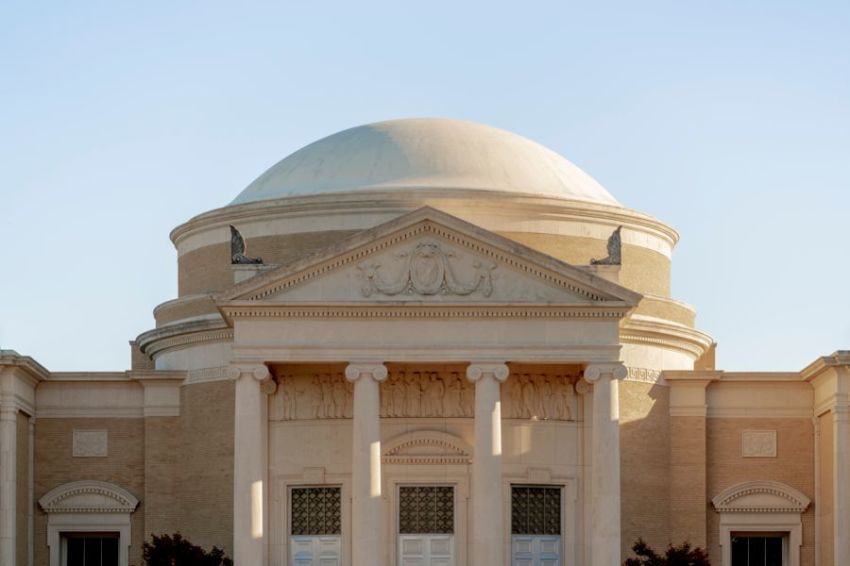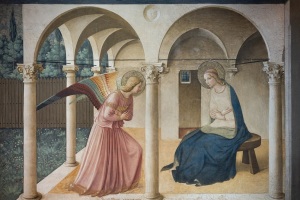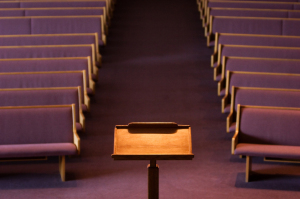What does it mean to be a Southern Baptist living in 21st century America?
Dr. Richard Land, executive editor of CP, talks political theology at SWBTS

FORT WORTH, Texas — Weighty topics such as Baptist political theology and the Conservative Resurgence were among several discussed during a conversation on “Baptist Public Theology, Democracy, and Principled Pluralism” hosted by the Land Center at Southwestern Baptist Theological Seminary.
Dr. Richard Land, executive editor of The Christian Post and namesake of the Land Center, was joined by Nathan Finn, the director of the Institute for Transformational Leadership and a professor of Christian Studies and History at North Greenville University, to look at how Baptists have dealt with both the political and theological realms since the mid-20th century.
Land said one of the defining features of a distinctive Baptist political theology is that it’s “derivative of who we are as Baptists” and pointed back to the Anabaptists of the 16th century who said they would not be bound to “proof texts” from the Old Testament and that there should not be civil penalties for religious infractions.
“The New Testament concept of the believers’ church, that it is a church made up of believers, people who have consciously made a decision or assented to the convicting work of the Holy Spirit, to give their lives to Jesus Christ as their Lord and Savior and are trusting Him and Him alone for salvation, and they follow Him in obedience in baptism by immersion in the name of the Father, Son and the Holy Spirit, and are organized into local assemblies called churches — everything else flows from that,” said Land.
Referring to theBaptist Faith & Message, Land added, the best model is that of a free Church and free State, one which does not endorse any religion but rather ensures accommodation for all faith backgrounds and viewpoints. Baptists or any other denomination should never be seeking support from the government.
“We shouldn't be looking to the government to support our work,” he said. “It’s our job to evangelize; it's our job to be salt and light. The government should accommodate that and give us the freedom to practice our faith.
“To me, that’s the essence of what it means to be Baptist.”
Noting the looming 45th anniversary of the "Conservative Resurgence" among Southern Baptists, Finn asked Land whether the denomination is moving further away or closer to the movement, which started in the late 1970s when two charismatic conservative leaders, Paige Patterson and Paul Pressler, came together and began planning what came to be called Conservative Resurgence of the SBC.
In response to a question, Land explained the Conservative Resurgence of the 1970s, '80s, and '90s was a response to a denominational bureaucracy that was drifting away from a conservative understanding of the inerrancy and complete accuracy of Holy Scripture, noting that eternal vigilance is the requirement to "maintain inerrancy."
Land explained that the Conservative Resurgence did not involve just two groups, but five.
Group One (fundamentalists who did not desire much contact with non-inerrantists); Group Two (inerrantists who believed there needed to be a course correction of a drift away from theological conservativism, but were willing to work with some who denied inerrancy, as long as they weren't driving the bus); Group Three (inerrantists who believed there did not need to be a denominational course correction, or the course correction had gone far enough or the course correction had gone too far, sometimes the same people at different stages of the resurgence); Group Four (moderates who still believed people needed to accept Jesus as Savior, but believed the Bible had mistakes and errors, and sections which "weren't up to the standards of Jesus"); and Group Five (recognizable liberals who denied miracles and some who denied a literal resurrection)."
Land explained that during the controversy, Groups One and Two were aligned against Groups Three through Five and won the national elections. However, there was no theological reason Groups Two and Three could not make common cause based on theological agreement and since probably at least 75% of Southern Baptists were in Group Two or Group Three. All of the conservative presidential winners were in Group Two, and their major opponent in each election from 1983 onward came from Group Three. This theological truth kept the Conservative Resurgence from causing a major split in the denomination. By the early 1990s, the Conservative Resurgence had gained operational control of the major denominational institutions.
Land, who said he believes the conservative resurgence ultimately “fell short of its goals,” pinned the movement’s shortcomings on “Baptists’ inherent desire for compromise.”
“My biggest concern today is that we have a generation that ‘knew not Joseph,’” said Land. “We have a generation of Southern Baptists who were born on third base and think they hit a triple.
“They have no idea of the sacrifices, the real sacrifices, the lost jobs, the firings from churches, the sacrifices that thousands of people made in order to stand up for inerrancy and bring about the Conservative Resurgence.”



























